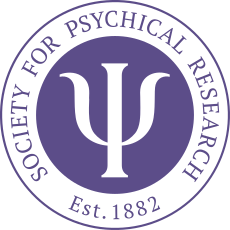
Reviewed by Zofia Weaver
A book has recently been published which does something very important very well. The book is Irreducible Mind: Towards a Psychology for the 21st Century, edited and largely written by Edward and Emily Kelly, with chapters by a number of prominent parapsychologists. Its aim is to demonstrate empirically the need for a new philosophical and theoretical framework to accommodate the phenomena of mind and consciousness.
A number of features make this scholarly, weighty (at over 800 pages literally as well as intellectually!) and clearly-written volume very special. It provides a comprehensive review of experimental and theoretical consciousness-related research in the light of its historical context and development, with a deep and wide-ranging philosophical sweep. It is also passionately scientific, both in following empirical evidence wherever it might lead, and in demolishing orthodox fallacies which managed to embed themselves in the current worldview on the basis of dubious empirical and/or philosophical credentials. In fact, much of the book’s argument relies heavily on empirical evidence provided by current research, particularly in neuroscience. However, the book also draws extensively on areas of evidence which tend to be outside the current framework (and that includes paranormal phenomena), often because of the difficulty in finding a place for them within the picture constructed on existing assumptions.
The book is aimed both at specialists and an educated general readership. It will be particularly rewarding for serious readers who try to follow developments in consciousness research and theoretical debates, while not being directly involved in that branch of learning. Readings in consciousness theories often leave one with that dissatisfied “yes, but what about [slot in your piece of evidence] …” feeling, yet unsure whether the problem lies with the theory, or with one’s own lack of expert knowledge. The arguments presented here draw attention to the problem that research in this area is often rich in data but less so in understanding, and throw doubt on the assumption that more of the same data will somehow reveal the full picture. Another feature valuable for the general reader is that the flaws in much of the theorising in mainstream psychology become apparent without the need to refer to what some would regard as “fringe” evidence, i.e. that of experimental parapsychology or subjective human experience, not to mention survival research – although such evidence is given its due weight.
The first chapter gives us a compact history of twentieth-century psychology, from behaviourism to cognitive neuroscience of today, emphasising the inability of these theories to account for many important aspects of mind and consciousness. It is followed by an introduction to Myers, the “forgotten genius”, and his contribution to the study of the mind-body problem. The chapters which follow bring comprehensive reviews of areas either neglected within the current framework of psychological research (such as the influence of mental states on the body, secondary centres of consciousness, near-death experiences and related phenomena, genius-level creativity or mystical experiences), or regarded as “basically solved” (such as memory, where “trace” theories, although taken as axiomatic within the current framework, are shown to be fraught with empirical and conceptual difficulties). The final chapter draws together the arguments running through the book, making a case for the theoretical framework, developed by Myers and William James, in the light of current scientific knowledge, including the more fundamental area of physics.
This clearly presented overarching view of the fundamental philosophical issues which lie behind the conflicting, and often passionately held, attitudes towards the field of psychical research/parapsychology, is an important event for anyone interested in the questions of consciousness, mind-brain relationship, and where the possible answers might lead us.

